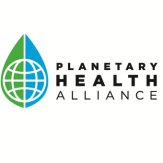Health in the Climate Emergency
The World Health Organization recently emphasised that the climate crisis is the single biggest health threat facing humanity. Until recently the adverse health effects of the climate crisis had been relatively neglected by policy-makers but that is beginning to change and must now change quickly.
Climate change is having a range of impacts on health today that will become more severe unless urgent action is taken. Vulnerable populations will see their health increasingly undermined by both direct impacts, such as from extreme heat, and indirect ones, e.g. from less food and nutrition security.
To produce science-based analysis and recommendations on a global scale, outstanding scientists from around the world – brought together by the world’s science academies under the umbrella of the InterAcademy Partnership (IAP) – have teamed up to collect and evaluate relevant evidence.
The three-year project involving well over 80 experts from all world regions also examined a number of climate mitigation and adaptation actions that could bring significant improvements to health and health equity (Source IAP)
IAP’s main messages
In summary, our aggregate messages are the following:
• Climate change poses serious threats now to human physical and mental health. Climate change health risks will increase over time. The need for action is urgent.
• Rapid and decisive action could greatly reduce the long-term risks to health from climate change and bring near-term benefits for health, including through reduced air pollution and other co-benefits of climate change mitigation.
• As health within a region is also affected by activities that contribute to climate change and the impacts outside that region, it is important to integrate inter-regional responses to climate change together with regional and national actions.
• Solutions for adaptation and mitigation are within reach using present knowledge, but action requires political will.
• The scientific community has important roles in generating new knowledge, for example about cost-effective technologies, policies and implementation strategies, and in countering misinformation and addressing equity in climate– health responses.
• There is need for better monitoring and surveillance of potential health impacts due to climate change. There is also need for better evaluation of implemented actions, to assess and quantify benefits, trade-offs and costs and document facilitators and barriers to action.
• Climate change intersects with and exacerbates other global challenges, including COVID-19, pollution, and loss of biodiversity. The pandemic is providing important lessons about responding to threats worldwide through cooperation and rapid mobilisation of resources at large scale.








